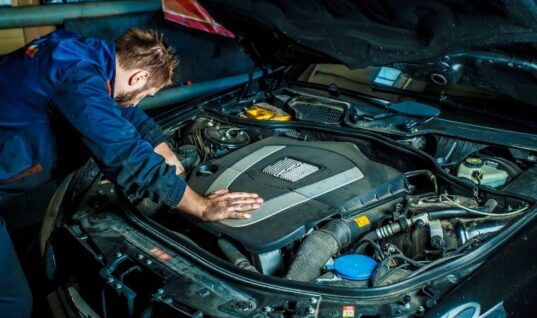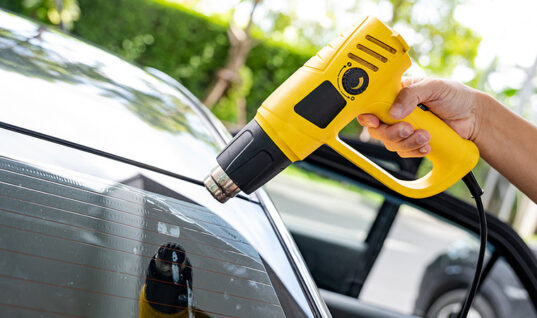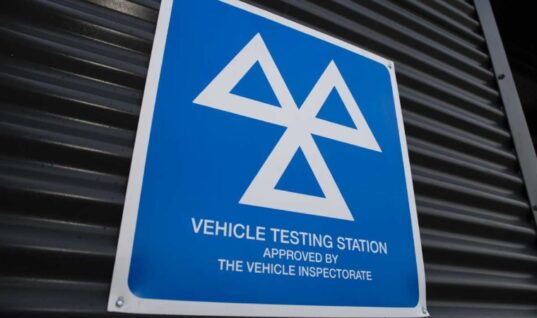The Institute of the Motor Industry (IMI) is urging government to tackle the lack of regulation in the interests of public safety and to help rebuild motorists’ trust in the sector.
Currently, there is no mandatory requirement for vehicle technicians to be qualified, or to ensure qualifications are kept up to date and in line with new vehicle technology.
However, research commissioned by the IMI has found that 85 per cent of MPs believe that a majority of technicians working in garages should have to be qualified, while 31 per cent say believe every technician should be qualified.![]()
Mandatory licencing
The study revealed that 56 per cent of MPs support the introduction of a mandatory licence to practise for motor technicians but over a quarter of Conservative MPs oppose the introduction, compared to just two per cent of Labour MPs.
Steve Nash, CEO of the IMI said: “Considering the technical advances that are now part and parcel of today’s cars, this is an extremely worrying issue and should be a real cause for concern for motorists’ safety.
“Yet, to date, we have been unable to convince government to make licensing of vehicle technicians mandatory.
“Several sectors in which public safety is critical, such as boiler maintenance and dental repair, require the practitioner to have a mandatory and renewable licence.
“It seems almost mind-boggling that the same principle is not being applied to the technicians who work on people’s cars.
“With the motor industry facing a real crisis of confidence as a result of the emissions scandal, surely it makes sense for the government to support an initiative that will ensure motorists can put their trust in the technicians working on their vehicles.”![]()
New technology
The number of registered hybrid vehicles utilising high voltage systems on UK roads has increased by a factor of three in the last five years to almost 200,000 and the numbers of electric and ultra-low emission vehicles are also increasing.
MPs were asked: “Do you think that technicians who earned their qualifications five or more years ago should have to demonstrate they possess the appropriate competences to work on technically evolving modern vehicles?”
More than half said yes, technicians should have to demonstrate they are competent to work on modern vehicles while 19 per cent said they didn’t know.
Find out more about the IMI by following the ‘More Details’ link below.
There are strong arguments that regulation will help with the public’s perception of the industry – let us know if you support calls for industry regulation by leaving your comments below. Are you already part of a voluntary scheme?








Steph Savill
It’s clear the Conservative party don’t understand the safety risks their free market attitude allows the unregulated motor industry to inflict on similarly ill-informed motorists. But the blame isn’t just theirs over the last 70 years or so. I think there have been some 15 so called ‘industry heal thyself’ schemes and yet none of these (for independent garages) mandate that mechanics be licensed.
When I inspect a garage I ask if staff are qualified and the answer is often ‘yes I/we have City & Guilds certificates’ but it’s usually clear from the age of the individual that this must have been a long time ago. Whereas the best thing about regulation/licensing is that those that aren’t wouldn’t be allowed to practise on the likes of our car brakes and electrics.
When things go wrong in this area, I’d love to see the day when there’d be just one body to inform/monitor standards, instead of too many me-too Trading Standards Institute schemes that all fail to mandate service and repair technician training/licensing.
Steph Savill
It’s clear the Conservative party don’t understand the safety risks their free market attitude allows the unregulated motor industry to inflict on similarly ill-informed motorists. But the blame isn’t just theirs over the last 70 years or so. I think there have been some 15 so called ‘industry heal thyself’ schemes and yet none of these (for independent garages) mandate that mechanics be licensed.
When I inspect a garage I ask if staff are qualified and the answer is often ‘yes I/we have City & Guilds certificates’ but it’s usually clear from the age of the individual that this must have been a long time ago. Whereas the best thing about regulation/licensing is that those that aren’t wouldn’t be allowed to practise on the likes of our car brakes and electrics.
When things go wrong in this area, I’d love to see the day when there’d be just one body to inform/monitor standards, instead of too many me-too Trading Standards Institute schemes that all fail to mandate service and repair technician training/licensing.
KAY
To have your boiler serviced you have to be Corgi registered but anyone can work on your car that is going to be driven on a public highway.
KAY
To have your boiler serviced you have to be Corgi registered but anyone can work on your car that is going to be driven on a public highway.
steve
Sooner the better, maybe someone needs to be hurt messing with a hybrid before anything will happen?
steve
Sooner the better, maybe someone needs to be hurt messing with a hybrid before anything will happen?
Paul Eady
There was talk about regulation when I went to collage in the 70s,&yes I only have city & guilds, but to keep up with the modern car I attend 3-4 courses a year, but at the moment anyone who can hold a spanner is a mechanic & can buy brakes,suspension parts & a/c gas from most motor parts outlets. So until they stop selling parts that could kill somone if not fitted correctly there seems little point in regulating just garages & making advanced tecnicians like me shell out more money on courses (they wont be free, will they.
Paul Eady
There was talk about regulation when I went to collage in the 70s,&yes I only have city & guilds, but to keep up with the modern car I attend 3-4 courses a year, but at the moment anyone who can hold a spanner is a mechanic & can buy brakes,suspension parts & a/c gas from most motor parts outlets. So until they stop selling parts that could kill somone if not fitted correctly there seems little point in regulating just garages & making advanced tecnicians like me shell out more money on courses (they wont be free, will they.
Peter Miles
It seems like there is an obvious answer to this but I really don’t think it’s that simple. Some new technologies are, for a while at least, going to be outside the knowledge of even the most honest and competent existing technician. But, there is a saying “know your limitations”. If some official where to walk into my workshop today and test my competence on hybrid vehicles I have to admit I would most likely fail. Oh, I know the very basics but I have yet to have a hybrid in my workshop and being in a very rural area I doubt if I ever will. So what do we need in the way licencing? There would have to be some sort of multi-tiered system ranging from the most basic (what I would term the quick fit type of level) up to a very pinnacle. What I see as more important is a measure of honesty. Do what you can do and do it very well. If you feel you can’t then turn the work away. But, yes, there are plenty of “trade” out there who don’t meet even that standard and they are the ones who should be put out of work for the benefit of the public and the industry as a whole
Peter Miles
It seems like there is an obvious answer to this but I really don’t think it’s that simple. Some new technologies are, for a while at least, going to be outside the knowledge of even the most honest and competent existing technician. But, there is a saying “know your limitations”. If some official where to walk into my workshop today and test my competence on hybrid vehicles I have to admit I would most likely fail. Oh, I know the very basics but I have yet to have a hybrid in my workshop and being in a very rural area I doubt if I ever will. So what do we need in the way licencing? There would have to be some sort of multi-tiered system ranging from the most basic (what I would term the quick fit type of level) up to a very pinnacle. What I see as more important is a measure of honesty. Do what you can do and do it very well. If you feel you can’t then turn the work away. But, yes, there are plenty of “trade” out there who don’t meet even that standard and they are the ones who should be put out of work for the benefit of the public and the industry as a whole